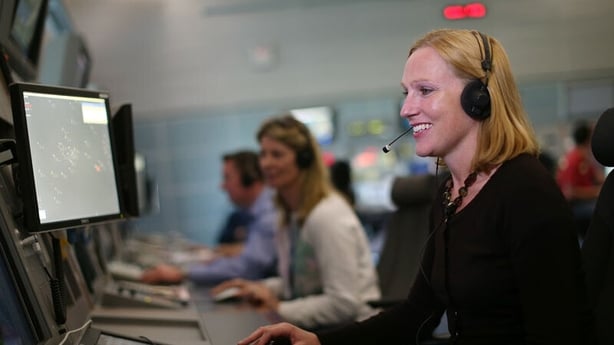Analysis: A new study has found that there are several challenges hindering gender diversity in Irish aviation
The first thing that comes to mind when we think of females in aviation is cabin crew. The aviation industry has long been a male-dominated field, with women accounting for only a small percentage of pilots and other aviation professionals. Gender diversity in the aviation industry has been a long-standing issue worldwide, and Ireland is no exception.
Apart from being a moral imperative, gender diversity is one of the social factors that is often considered in Environmental, Social and Governance (ESG) evaluations. This refers to a set of criteria used to evaluate a company's performance in these areas.
Gender diversity is viewed as a positive factor from an ESG perspective because it is associated with better corporate governance and more socially responsible behaviour. Companies that prioritise gender diversity are often seen as more progressive and innovative, and this can help them to attract and retain talented employees and customers. Moreover, companies with more diverse workforces and leadership teams have been shown to have better financial performance.

One factor that contributes to the low number of women in aviation is the historical gender bias in the industry. There are still some gender stereotypes and biases in recruitment and promotion processes, which prevent women from advancing in their careers. The aviation industry has a long history of being male-dominated, with men occupying most of the leadership positions and high-skilled jobs. Women were traditionally viewed as being unsuited for these roles, and gender bias and stereotypes have continued to persist in the industry.
Despite some progress made in recent years, such as the appointment of Lynne Embleton as Ireland's first female airline CEO at Aer Lingus, there is still a long way to go to achieve gender diversity and equity in the industry. According to the Irish Aviation Authority, women comprise only 7% of pilots and 15% of air traffic controllers in Ireland as of 2021. These figures are even lower when it comes to maintenance, repair, and overhaul and engineering roles. Furthermore, women are underrepresented in management and leadership positions, with only a few female CEOs, directors, and board members in Irish airlines and airports.
At DCU, we conducted a study with the help of the aviation industry on the low representation of women in the sector beyond cabin crew positions. We found that there are several challenges that hinder gender diversity in Irish aviation. For example, we found that 63% of females have experienced or witnessed discrimination in the aviation industry. Half of the companies report startig their diversity and inclusion journey, but 92% do not have a budget allocated to it.
We need your consent to load this rte-player contentWe use rte-player to manage extra content that can set cookies on your device and collect data about your activity. Please review their details and accept them to load the content.Manage Preferences
From RTÉ News, concerns over aviation industry meeting emissions targets
Our study also found that females have reported a greater perception of progression barriers in the workplace than males. Confidence in their own ability (66% v 47.5%), lack of a sponsor (60% v 46%) and the lack of development opportunity (74% v 62%) are the main barriers to career advancement for females compared to males.
Despite the challenges, there are significant steps towards improving female representation in Irish aviation, with many airlines, airports and leasing companies developing initiatives to attract and retain women. With half of the companies surveyed reported having started their Diversity & Inclusion journey, it seems that companies now understand better the business case for gender diversity and its benefits such as improved performance, creativity and innovation.
Companies now understand better the business case for gender diversity and its benefits
To promote gender equity in Irish aviation, there are several strategies that can be implemented. First, there is a need to encourage more girls and women to pursue careers in aviation through awareness campaigns and outreach programs. Second, there should be a greater focus on eliminating gender biases in recruitment and promotion processes. Third, there should be more support for women in leadership positions, such as mentoring, coaching, and networking opportunities. Finally, there should be greater transparency in pay and benefits to address the gender pay gap.
Gender diversity and equity are essential for the success and sustainability of the aviation industry in Ireland. Our study found that although there are still significant challenges to overcome, there are also opportunities and strategies to promote gender diversity and equity. By working together, the industry can create a more inclusive and diverse workforce, which will benefit everyone involved.
The views expressed here are those of the author and do not represent or reflect the views of RTÉ







